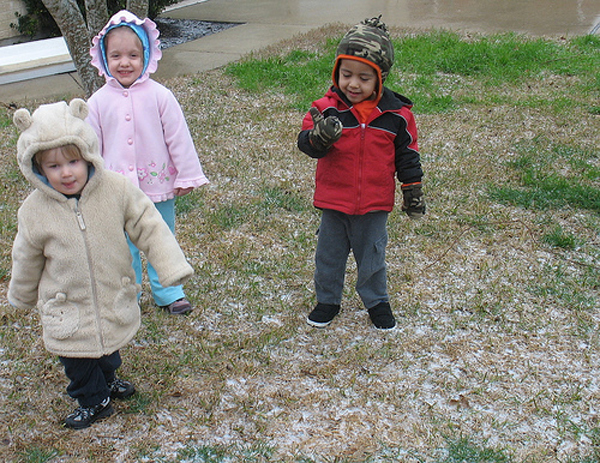- La Feria Community Holds Succesful Business Mixer Event
- Little Nashville to Take Place in Downtown Mercedes
- Lions Basketball Captures District Gold
- La Feria ISD Students Compete in Regional Chess Tournament
- Lions End First Half of 32-4A on a High Note
- La Feria ISD Held Another Successful Parent Conference
- Strong Appearance for Lions at Hidalgo Power Meet
- LFECHS Students Get to Meet Local Actress
- Students Participate in Marine Biology Camp
- Two LFECHS Students Qualify for All-State Band
Foundation of Success for TX Children Is Built in First 8 Years
- Updated: November 22, 2013
More Than Half Texas Kids in Poverty or Low Income
by John Michaelson/TNS
AUSTIN, Texas – A new report details how the first eight years of a child’s life are the most critical in determining if he or she will go on to succeed, and that’s why investments are needed.
Frances Deviney, director of Texas Kids Count, says the report verifies how important those first years are for a child’s future, which adds to an already growing field of research on the subject.
“Showing that the focus on early years for both brain development and social development are critically important, not just because it makes our kids happier and healthier but because it impacts the rest of their lives,” she explains

In order for children in Texas and across the nation to succeed, it’s critical that they have support in areas such as education and health in their first eight years. Photo: Bruce Szalwinski/TNS
The report from the Annie E. Casey Foundation found that for third graders, nearly two in three are behind in terms of cognitive development. The figures for low-income and minority children are even worse.
A crucial part of those first eight years, Deviney says, is quality early education.
She says Texas does have a good pre-K program but it falls far short in reaching the many children who need the support.
“Two-thirds of our low-income kids don’t have access to preschool,” she explains, “and given that about two-thirds of our kids in public schools are low income, we’re talking about the vast majority of our future workforce.
“So getting kids ready early on is going to be really key in Texas.”
In Texas, more than half of children are growing up in poverty or living in a family considered low income.


